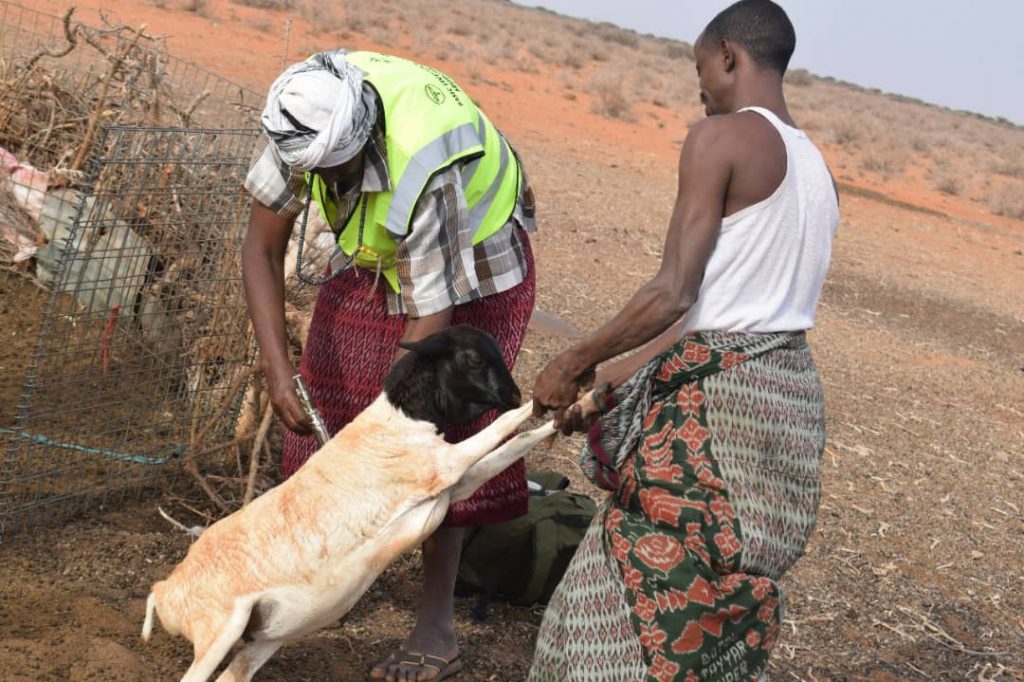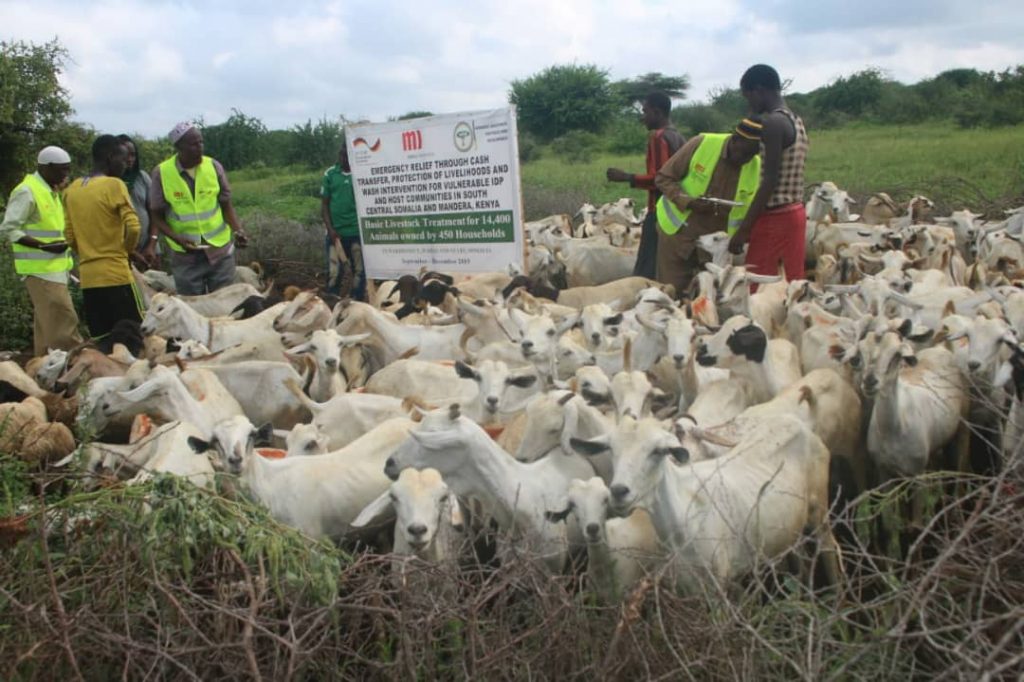As one traverses Abduwak district, one cannot help but notice its vast plain lands with spacey grasslands and shrubs doted by hundreds of livestock; camels, cows, donkeys sheep and goats. Recurrent drought in the pasts five years with subsequent deterioration of pastures and prevalence of livestock diseases resulted to loss of thousands of livestock severely affecting the livelihoods of the pastoralist communities in the district. Competition for scarce resources has led sporadic clan conflicts that have exacerbated the vulnerability of the residents.
Abdul is one of the residents of the district who lost hundreds of livestock during the 2017/2018 famine. Whilst remarkably resilient, Abdul has a sense of loss;
“My sheep and Goats died from a strange disease and drought. I only remained with 30 animals which could barely produce any milk.I was unable to sell them at the market,” Says Abdul.

Abdul like many other residents of the district rely entirely on the livestock for their livelihood. With the loss of over 80% of their stock and reduced market prices the pastoralist can hardly feed their families. The communities are spending all their income on food, water and other non-food essentials. This leaves barely any income left for treatment and care of their livestock. Families in this area are already bearing the brunt of the negative economic impact, a fact reflected in the high levels of household indebtedness which is also severely constraining food access. Continuous support of pastoralist households must build resilience against climate-related shocks by providing timely veterinary and feeding assistance for their animals.
“For years I have struggled to feed the ten members of my family from the meagre income I earned from my small herd. Without technical skills or training, I was ill-equipped to grow the herd or improve their health to fetch better prices in the market, no matter how badly I wanted to improve my livestock production capacity.” Abdul narrates.

Goats receiving the SGP treatment. 
Community Health Workers examining a goat in Abduwak.
NAPAD in partnership with Medico International through funding from German Federal Foreign Office (GFFO), supported the treatment of over 20, 800 animals for 2200 households in four remote villages in the district. Community Animal Health Workers (CAHWs) were identified and received a pre-treatment refresher training from the NAPAD Animal Health Officer. The 5-day training covered all relevant topics on symptoms of diseases, treatment, handling of animals. The trained CAHWs together with NAPAD animal health officer treated and dewormed ailing animals from the vulnerable households. Common diseases treated include sheep and goat pox (SGP) and Foot-and-Mouth Disease (FMD). The CAWH also instructed livestock owners on good livestock production practices such as hoof trimming, regular deworming with the intent to improve animal productivity.

”My livestock now produce additional litres of milk compared to production amounts before the program. Increased production has allowed me to provide milk for my children and also sell the extra milk and use the money for food, health services, and school fees.” Says Abdul
